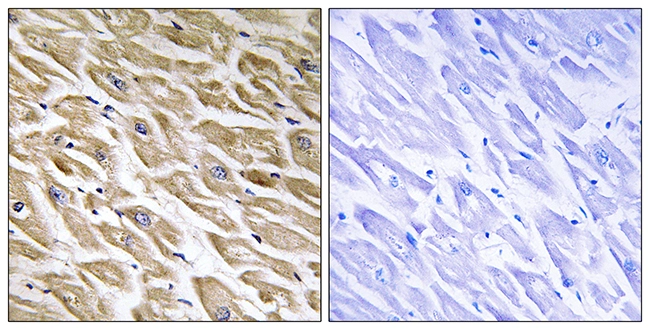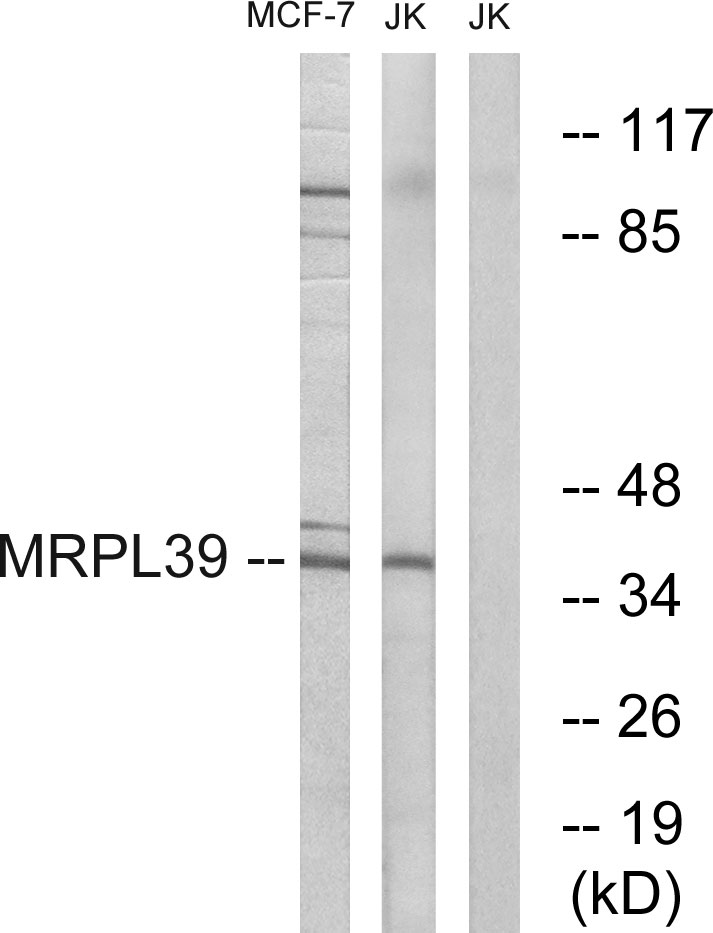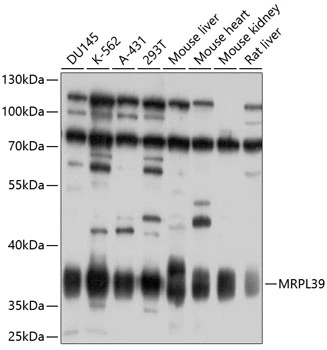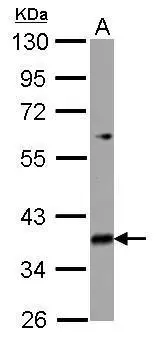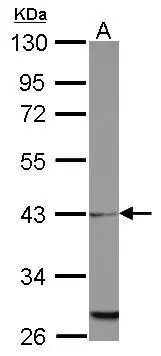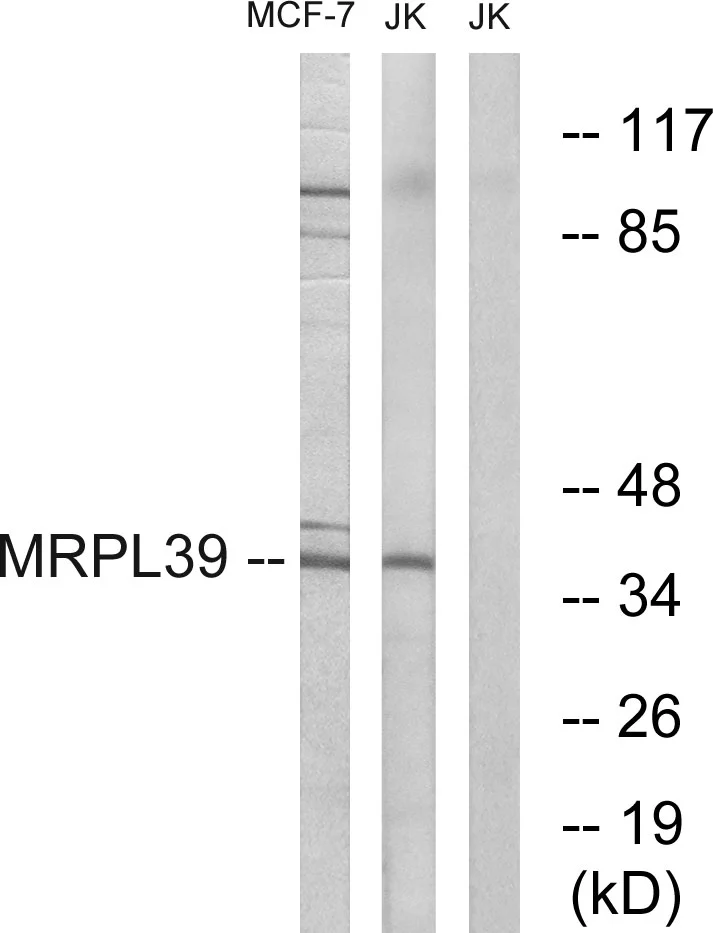
WB analysis of Jurkat and MCF-7 cell lysates using GTX87886 MRPL39 antibody. The lane on the right is blocked with the synthesized peptide.
MRPL39 antibody
GTX87886
ApplicationsWestern Blot, ImmunoHistoChemistry, ImmunoHistoChemistry Paraffin
Product group Antibodies
ReactivityHuman
TargetMRPL39
Overview
- SupplierGeneTex
- Product NameMRPL39 antibody
- Delivery Days Customer9
- Application Supplier NoteWB: 1:500~1:1000. IHC-P: 1:50~1:100. *Optimal dilutions/concentrations should be determined by the researcher.Not tested in other applications.
- ApplicationsWestern Blot, ImmunoHistoChemistry, ImmunoHistoChemistry Paraffin
- CertificationResearch Use Only
- ClonalityPolyclonal
- ConjugateUnconjugated
- Gene ID54148
- Target nameMRPL39
- Target descriptionmitochondrial ribosomal protein L39
- Target synonymsC21orf92, COXPD59, L39mt, L5mt, MRP-L5, MRPL5, MSTP003, PRED22, PRED66, RPML5, mL39, large ribosomal subunit protein mL39, 39S ribosomal protein L39, mitochondrial, 39S ribosomal protein L5, mitochondrial, mitochondrial large ribosomal subunit protein mL39
- HostRabbit
- IsotypeIgG
- Protein IDQ9NYK5
- Protein NameLarge ribosomal subunit protein mL39
- Scientific DescriptionMammalian mitochondrial ribosomal proteins are encoded by nuclear genes and help in protein synthesis within the mitochondrion. Mitochondrial ribosomes (mitoribosomes) consist of a small 28S subunit and a large 39S subunit. They have an estimated 75% protein to rRNA composition compared to prokaryotic ribosomes, where this ratio is reversed. Another difference between mammalian mitoribosomes and prokaryotic ribosomes is that the latter contain a 5S rRNA. Among different species, the proteins comprising the mitoribosome differ greatly in sequence, and sometimes in biochemical properties, which prevents easy recognition by sequence homology. This gene encodes a 39S subunit protein. Two transcript variants encoding distinct isoforms have been described. A pseudogene corresponding to this gene is found on chromosome 5q. [provided by RefSeq, Jul 2008]
- ReactivityHuman
- Storage Instruction-20°C or -80°C,2°C to 8°C
- UNSPSC41116161
References
- Lactate-mediated mitoribosomal defects impair mitochondrial oxidative phosphorylation and promote hepatoma cell invasiveness. Lee YK et al., 2017 Dec 8, J Biol ChemRead this paper

